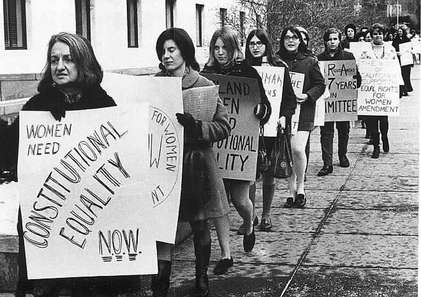In the years 2008 and 2012, America voted two different politicians into the Presidential office to fit the fiscal, social, war-time and emotional needs of the nation. Despite the drastic differences between these election years, both of these politicians voted into office are named Barack Hussein Obama.
In party affiliation, speech style and DNA, Barack Obama is the same politician in 2012 that he was in 2008. But the similarities stop there. One only needs to look at his two different victory speeches to see that Barack Obama is a very different man and will most likely be a very different president than the man elected in 2008.
Think back to 2008. You will remember a very different America. In December of 2007, America experienced the beginnings of an economic downturn comparable to the Great Depression. Sound extreme? It sounds this way for good reason. The real estate market crashed, banks crashed, the job market crashed. Barack Obama and John McCain had the privilege of running for presidency amidst a panicking and fearful America.
What did John McCain run on? The importance of dealing with the problems of our nation first before we can even dream of helping other nations. He came before America as a veteran from Arizona- conservative guns blazing. What did Barack Obama run on? Hope. Plain and simple. He came before America bright-eyed, bushy-tailed with one term as senator under his belt.
Experience is not what America needed in 2008. In 2008, America needed someone who represented newness; a coming up from the ashes. America wanted to be able to say “We are still the greatest nation on the planet.” So America chose “hope” and “progress”- exactly what Barack Obama was promising.
Everything Obama stood for and everything America needed is evident in Obama’s 2008 victory speech. In this speech, Obama paints a picture of a new America. In order to achieve this America, Obama reminds the audience of his excitement to reach across the aisle- figuratively and literally- to get things done (9 minutes in). He then talks about the need for Americans to be willing to help each other (9:50). Obama states that it is time to get rid of the partisanship that has held back American progress (10:10). After aligning himself with Lincoln (11:00), Obama declares that “a new dawn of American leadership is at hand” (11:30). America’s newly elected President wraps up his speech with the statement that the true genius of America is her ability to change (12:30).
The speech oozes of hope. The President Elect’s optimism for the nation is not to be brushed off or taken lightly; as naive or perhaps unrealistic as Obama’s speech, goals and intentions for the nation may seem now, this is exactly what the nation wanted and desperately needed at the time.
Fast-forward four years and the political race for the presidency looks completely different. Instead of the staunchly conservative veteran from Arizona, the Republican Party chose a younger, more moderate Governor from Massachusetts. Instead of the young, hopeful activist from Chicago, the Democratic Party chose to send in a much more experienced, more liberal candidate than before. Here’s the punchline: the Democratic candidate of 2012 was the same man as in 2008. Technically.
America in 2008 was very different from America in 2012. America in 2012 is coming out of the economic crisis of 2007. Students are not expected to drop out of college if they cannot afford it. People who have lived in this country their whole lives but are not citizens are being given the opportunity to be considered legitimate and contribute to society. Health care is considered a right, not a privilege.
So why is Obama still the man for the job? He has grown with the nation. The man who gave the presidential victory speech of 2012 is a very different man from the one in 2008. Instead of emphasizing the ability to reach across the aisle, this man discussed the need to move forward no matter what. Instead of encouraging politicians to put aside their party affiliations to work together, he celebrated the ability of our nation to argue and disagree- after all, this is democracy. Instead of championing the new type of leadership entering America, he embodied it.
When considering the nation’s growth and Obama’s transformation, his politics play a role but not nearly as significant as one would think. What is so astounding about Barack Obama is that, while he has had to become a new man, he has been the man America has wanted and needed for the past two elections. One may say that this isn’t new or significant- a great majority of Presidents have received their opportunity at their second term. While this may be true, three things cannot be ignored:
1) America in 2012 looks very different from America of 2008
2) President Elect Obama in 2012 looks very different from President Elect Obama in 2008
3) Both Obamas have been exactly what the nation called upon at the time

